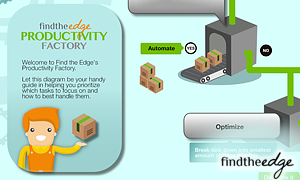NOTE: This is Part 2 of a series of articles on Dynamite Domains
Choosing the right domain name for your SEO campaign is so important that it can sometimes kick up quite a bit of confusion or uncertainty about what domain name you should register – especially if your keyword.com domain name is already taken.
So, in this article, we're going to go a little bit more in depth on how keywords relate to domain names, and we'll also cover domain name categorization. We're going to cover the main extensions (which are also known as domain categorization) which is just the bit on the end of the domain name – .com, .org, .net, or .com.au (if you're in Australia) for example.
We're also going to cover hyphens; specifically, how hyphens can be used in domain names. We'll cover keyword density in domain names (this is the percentage of the domain name that’s taken up by the keyword) and we'll also cover prefixes and suffixes in domain names.
Domain Extensions
Also known as categorization, the domain extension depends what category the domain falls into. The first level categorization of domain names are the Top Level Domains (also known as TLDs) including Generic Top Level Domains (GTLDs) such as .com, .net, .org, and .info, and .biz, etc. Also falling under TLDs are Country-Coded TLDs (CCTLDs) which stands for country code top level domains, which are country specific domains like .ca for Canada, .co.uk for the UK, .com.au for Australia, and so on.
Below these Top Level Domains in the Domain Name System (also known as the DNS) are the second level and third level domain names. We're going to concentrate primarily on GTLDs (or CCTLDs if your niche is country specific).
All things being equal, .com domains will always hold the greatest value, and although Google claimed that the extension has no SEO advantage or disadvantage with TLDs, countless different SEO experts claim that the .com’s have the SEO advantage in their experience.
With .com’s being the most sought after domain extension, there's always a certain amount of kudos in holding a .com. So, this will definitely work in your favor if you're looking to build a brand identity.
After that, there's some debate as to whether .net or .org have the edge on each other, but personally, for me, I've had better SEO experiences with .org. Although you should also consider what you're using the domain for, because some people still see .org as public sector or charity style domains, so this could either work for you or against you depending on your niche.
.info and .biz would follow next, but, again, there are loads of debates all over the internet over which performs better. Some people like .info because they're meant to be informational sites, and if you're selling information, this may work pretty well for you. Although .info’s have always been very cheap and have, therefore, been used widely by spammers, so they do carry this kind of an association with them.
Now, if your niche is country specific then you should consider registering the appropriate CCTLD. So, for example, if you're focused in the UK (Sorry if I keep going on about the UK, probably because I'm from the UK), then you should definitely try and go for the keyword.co.uk (or if you're targeting Canada, for example keyword.ca) and have this as your primary domain for SEO purposes.
The good thing about these CCTLDs is that they're pretty easy to acquire as well. So, getting them is a lot easier than going for regular TLDs (in most cases anyway) and also it allows the Google bots to know what country you're looking to rank in.
Hyphens
Another highly debated issue among SEOs is using hyphens in a domain. For example, using key-phrase.com. So, if you're in car hire, an example would be car-hire.com. This is very highly debated among SEO experts and, if you think about it, putting a hyphen in a domain name is going to make it harder to remember, so in turn, this is going to make it much less brandable.
Another debate is whether one hyphen is okay and whether two hyphens is too much. But there's a rule of thumb amongst the SEO community, and it is that more than one hyphen is going to appear spammy, both to the search engines and the human eye. So, “it’s generally okay to have one hyphen in there” is the general consensus among the majority of the SEO community.
I have to be careful here, because Google hasn't come out and said that they're going to discriminate against hyphens, either one hyphen, or two hyphens, but the general consensus is one hyphen is okay.
Keyword Density
So, let's talk about keyword density. By keyword density I mean what percentage of the domain name, before it's extension (the bit before the .com or the .org) is the actual keyword, versus what percentage isn't.
For example, if your main keyword you're targeting was washers because you happen to sell washers then washers.com has a keyword density of 100% because there's no other letters, numbers, words, or symbols in there.
Topwashers.com, for example, has a 70% keyword density because seven out of the actual ten letters includes the keyword, whereas three of the ten letters don't include the keyword. So, those three letters are 30% non keyword related.
I prefer domains that have as much keyword density as possible because, in my experience, the lower the keyword density, the more polluted the domain name.
Prefixes and Suffixes
And finally, let's look at prefixes and suffixes.
When we talk about prefixes within a domain we mean the word before the keyword. So, for example, mykeyword.com. My is the prefix.
For a suffix it's the word after the keyword. So, in keywordonline.com, the suffix is the word online.
There are quite a number of common generic prefixes such as my (mykeyword.com), your (yourkeyword.com), and buy (buykeyword.com, or .net, or .org, or .co.uk), for example.
There are also some common suffixes like blog (keywordblog.com), online (keywordonline.com), reviews (keywordreviews.com), and so on.
These are all good choices if they're suitable for the keyword in question. What I mean is that it's a good choice if it looks reasonable to the human eye, or if the non-keyword actually turns the keyword into a key phrase. For example, if you were to have buywashers.com then the non-keyword buy would actually turn it into a key phrase that people are searching for (“buy washers”). It's also a fair choice if thekeyword.extension is not available, so thekeyword.com,or thekeyword.net, or thekeyword.ca (if you're in Canada), and so on.
Again, the debate goes on, because a lot of people say you should use suffixes over prefixes where possible because this allows the search engines to see the keyword first before the actual other word. But again, this is debatable, and it's up for interpretation, because it would all depend on what the suffix is or what the prefix is. If it's a blog then great, but if you're using the word buy before something, for example (as a prefix), then that could be a really good search term and it could also be a very good converter, because if people are actually typing in buy and then your keyword then it's going to have a much better conversion rate once they actually enter your site.
The main thing you should look at though is – whether the domain fits the usage?
Summary
So, in this section we've covered extensions (that's .com, .org, .net, .co.uk and so on). We've also covered hyphenated domains. We've covered keyword density in domains and we've also covered prefixes and suffixes in domains.
It may surprise you how much there is to consider when choosing a domain name, and it's probably one of the reasons many seasoned Internet Marketers tend to register multiple domains in their chosen niches. It does help you prevent your competition from acquiring them and it can also allow you to have them for yourself, so that you can develop them and then dominate your niche.





